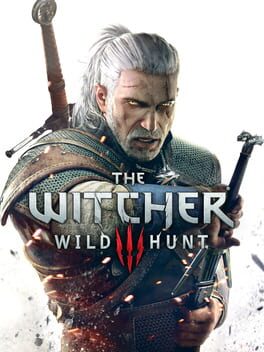Review Details

Description
The Witcher 3: Wild Hunt is an open-world action role-playing game developed by CD Projekt Red. Set in a dark fantasy world, the game follows Geralt of Rivia, a monster hunter searching for his adopted daughter, Ciri, while navigating political conflicts and supernatural threats. Gameplay features exploration, combat, character progression, and branching narratives shaped by player choices. Widely acclaimed for its writing, world-building, and depth, it is considered one of the most influential RPGs of its generation.

Review
Few games have managed to leave a mark on the RPG landscape quite like The Witcher 3: Wild Hunt. Developed by CD Projekt Red, this open-world fantasy epic sets a new standard for narrative depth and player agency. From the moment protagonist Geralt of Rivia rides onto the war-ravaged fields of Velen, players are thrust into a world alive with intrigue, peril, and consequence. The game's mature storytelling doesn't just lean on fantasy tropes; it explores themes of family, prejudice, and moral ambiguity, rarely offering clear-cut answers or easy choices.
The narrative strength of The Witcher 3 is buoyed by its exceptional writing and voice acting. Even side quests, often an afterthought in lesser RPGs, are richly detailed and frequently outshine primary storylines found in other games. The Bloody Baron, for instance, stands out as one of the most memorable arcs in gaming history, deftly handling delicate subjects like addiction and loss. Every decision, whether handling a simple monster contract or interfering in political machinations, carries tangible weight and can alter the world around Geralt.
Visually, The Witcher 3 is breathtaking. Its environments, which span haunted swamps, sunlit meadows, and bustling medieval cities, are meticulously crafted and teem with life. Dynamic weather, day-night cycles, and immersive ambient sounds create an atmosphere that's as engaging as the story itself. Riding Roach, Geralt’s loyal horse, across the rolling fields of Toussaint or through a rain-soaked Novigrad, it's impossible not to lose oneself in the beauty and danger of the world.
Combat in The Witcher 3 is satisfying and complex, striking a balance between accessibility and depth. Geralt’s arsenal includes swords, crossbows, bombs, and a suite of magical signs, each useful in different combat scenarios. The game encourages preparation—researching monsters and brewing potions can mean the difference between victory and defeat. While the learning curve can feel steep, especially for newcomers, mastering the intricacies of alchemy and swordplay is deeply rewarding.
What truly sets The Witcher 3 apart is its attention to detail and the sense of immersion it fosters. NPCs follow daily routines, townsfolk react to Geralt’s reputation, and even minor events can lead to surprising consequences elsewhere in the world. The two massive expansions, Hearts of Stone and Blood and Wine, are not mere appendices but worth-their-own-price RPGs, adding substantial storylines and new regions that rival the size and quality of the base game.
Not everything is flawless: the original release was plagued by bugs, and although subsequent patches have resolved many issues, some UI and inventory frustrations linger. Mounted movement can sometimes feel cumbersome, and certain fetch-oriented side quests may not hold the same narrative punch as the best the game offers. Still, these drawbacks are minor compared to the overall experience, which remains extraordinarily polished years after release.
In conclusion, The Witcher 3: Wild Hunt is a masterclass in game design and storytelling. It seamlessly blends an enthralling narrative with a living, breathing world, offering hundreds of hours of meaningful content. The Witcher 3 is not just a great RPG; it’s one of the finest video games ever created, a landmark title that continues to set the bar for role-playing adventures.


